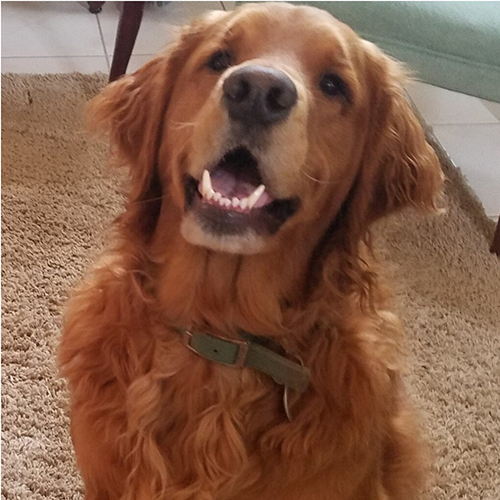By Heidi Clayton
One of the most common parasites found in dogs is called Giardia. Giardiasis is when a dog becomes infected with this highly contagious parasite. In most cases, Giardiasis is not fatal. However, it’s highly contagious due to how hardy of a parasite it is.
The Giardia parasite has two forms: trophozoites and cysts. The cyst is a trophozoite that is protected by an outer shell that can live in your dog’s intestinal areas for a long time. These cysts are very hardy. They can be constantly shed into the grass, your dog’s fur, water bowls, or your dog’s bedding. Reinfection is an endless possibility. Even if you only have one dog that has become infected, they can easily reinfect themselves when cleaning their fur or paws, or even from drinking from their water dishes.
Not all dogs exhibit symptoms of Giardiasis and can be asymptomatic despite being infected for long periods of time. However, puppies, older dogs, dogs with compromised immune systems, or those with sensitive stomachs will almost always show signs. The most common sign is very watery diarrhea or the presence of mucus in the stool. If normal methods of fasting your dog do not resolve a bout of diarrhea, a trip to the vet may involve two fecal tests as Giardia sheds intermittently. Most vet clinics can test for this common parasite in-house and may ask you to bring a stool sample back at the end of treatment to ensure that the parasite has been removed. The most common medications prescribed for Giardiasis are Panacur (also known as Fenbendazole) and Metronidazole.
If your dog has been diagnosed with Giardiasis, you should do a deep cleaning of their living spaces. Wash all of their bedding. Scrub crates or pens with a bleach solution or ammonia. You should also bathe your infected dog at the end of the treatment to wash away any cysts shed into their fur. If you have multiple dogs and are worried about the very real possibility that the Giardia parasite has been spread among them, you should ask your vet if giving all your dogs a round of meds is prudent. You should also limit their access to sharing water bowls and food dishes. Also, even if your dogs do not have Giardiasis, you should always clean up poop right away.
You may never know where your dog picked up the Giardia parasite, but you can minimize their chances of getting it. Don’t let your dogs sniff dog poop that has not been cleaned up on walks. Avoid letting them drink from puddles and keep them from eating goose or deer poop.
Giardiasis can be highly unpleasant for your dog. Keeping them quarantined during treatment may be inconvenient. However, most dogs recover easily and can be back to normal life in no time.
If you have any questions, please feel free to email heidi@fouronthefloordogtraining.net.
Heidi Clayton started Four On the Floor Dog Training to provide positive, reward-based dog training in South Jersey. She breeds, trains and shows bull terriers under the SoraBully’s Bull Terriers kennel name. Email questions to heidi@fouronthefloordogtraining.net or learn more at https://fouronthefloordogtraining.net










